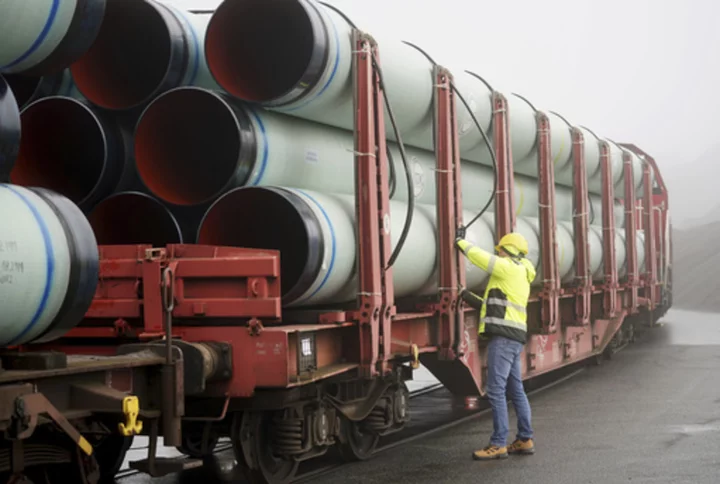BERLIN (AP) — The German government on Monday rejected criticism that it pushed to weaken existing commitments for phasing out natural gas at a summit of leaders from the Group of Seven major industrialized democracies, saying the concluding statement is in line with international climate efforts.
Environmental campaigners slammed the leaders' decision in Japan to back the construction of new infrastructure for liquefied natural gas, a planet-warming fossil fuel. In their final text the G7 said that “investment in the sector can be appropriate in response to the current crisis and to address potential gas market shortfalls provoked” by Russia's attack on Ukraine.
“In the exceptional circumstance of accelerating the phase-out of our dependency on Russian energy, publicly supported investment in the gas sector can be appropriate as a temporary response,” the G7 said, adding that this must be done in a way that's consistent with efforts to curb global warming.
Tracy Carty of Greenpeace International said the endorsement of new fossil gas infrastructure “is a blunt denial of the climate emergency.”
"Fossil gas is one of the most polluting forms of energy and in its liquefied form, its carbon emissions can be as bad as coal,” she said.
Friederike Roeder of the campaign group Global Citizen said the part played by Germany at the G7 talks was “particularly disappointing."
“The EU’s role in international climate diplomacy is critical but if Germany, as the biggest member state, continues to focus its negotiation power on new gas investments rather than leading the way for a future free of fossil fuels, this won’t be possible,” she said.
German government spokesperson Steffen Hebestreit noted that all G7 countries have now set targets for reducing greenhouse gas emissions to ‘net zero’ by mid-century or sooner, meaning gas would only be used for another 27 years at most.
“And gas will be needed for this time, too,” he told reporters in Berlin.
“In the past Germany has never said it completely rejects the exploitation of new gas fields," said Hebestreit.
At their meeting in Hiroshima, G7 leaders also expressed support for energy saving measures and the rapid roll-out of renewable power generation such as wind and solar.

